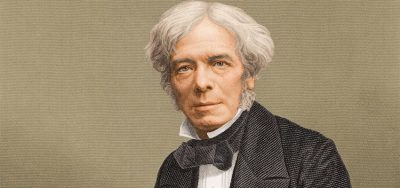Tonga given rugby red card

Tonga’s rugby league team has been banned from competing at Test level – meaning it will be unable to take part in this year’s World Cup.
Today, the Court of Arbitration for Sport (CAS), based in Lausanne (Switzerland) has dismissed the appeal filed by Tonga, against the game’s global ruling body, which sought to overturn a decision to expel the Pacific Islanders from all international competition and revoke its membership of the game’s ruling body.
At the heart of the row is Tonga’s refusal to comply with the demands of International Rugby League’s top brass, who had called for the urgent adoption of a series of recommendations designed to clean up the game in the country. In addition, Tonga’s attempts to frustrate the investigation – by refusing to answer questions and cooperate with the inquiry team – also counted heavily against them.
The expulsion takes the game into unchartered territory, for never has a country been reprimanded so severely. It comes into force immediately – putting their participation in the Rugby League World Cup in severe doubt.
The tournament, which is being hosted in the UK, is scheduled to kick off in October. Although firm outsiders, Tonga were due to play against Papua New Guinea in St Helens on 26 October, with further pool fixtures scheduled against Wales (1 November) and The Cook Islands (7 November).
Only a year ago, the Tongans recorded one of their greatest-ever victories when they beat world champions Australia in their own back yard.
Now, unless officials can somehow persuade rugby league chiefs to reconsider today's unambiguous verdict, these games will now not go ahead – and the national side will become a sporting pariah for the foreseeable future.
Report by Tony Yorke
Football faces a harsh reality

Let’s not pretend that greed isn’t a driving force for all top-flight football clubs in England. It is – and it always has been.
And, while we’re at it, lets not over-inflate the importance of fans to the big clubs. For the avoidance of doubt, they are the least of the big clubs’ concerns. Indeed, many regard supporters as a nuisance and irritation rather than their life-blood.
If these are inflammatory comments, then I apologise. But I speak with some knowledge.
I was once a member of the senior management team that ran a yo-yo Premier League and Championship club, and someone who sat down with officials from the Football Association, Football League and Premier League to discuss the commercial future of the game.
A decade ago, when I was active, the game was about making as much money out of TV revenues and merchandise as it possibly could. It was about squeezing every penny out of the loyal supporter. That’s why match days are now all-day ‘experiences’, with opportunities galore to spend money. Sadly, the football – the 90 minutes all fans are really concerned about – is the one thing clubs want to avoid. For it’s where their control ends.
Unlikely to succeed
Yesterday’s announcement of a European Super League, involving the ‘Big Six’ in England has caused outrage in the ranks of supporters up and down the land. It has even seen the Prime Minister and Prince William wade in on the act, voicing their opposition to the move.
But it is one of the few opportunities the clubs concerned still have to exercise some semblance of control, albeit the venture is unlikely to succeed.
The clubs involved know it – but they are desperate to exert their influence and not be the equal players they are forced to be in the Premier League structure.
In the current system, English clubs are unable to broker individual TV rights deals with broadcasters like Sky. This means the likes of Manchester United are forced to forego fortunes in the interests of 'unity'. Instead, the deals are negotiated centrally – by Premier League officials – and funds distributed equally, with a ‘bonus’ awarded the teams at the end of the season, when their end-of-season league position has been ratified.
A decade ago, virtually the same cabal were meeting secretly and hatching plans for a carve-up of the game. So the Super League is nothing new; far from it.
What the last few days represent, however, is the first public showing of the clubs’ intentions – and their utter disregard for everyone other than the small caucus they belong to.
And it also demonstrates how flawed their strategy is – for even they will have been shocked at the way in which the world has become united against them. They would have factored in some opposition to the move, but not the tidal wave of adverse opinion that now confronts them.
And I believe the opposition to this move will stay resolute until the participants are eventually pacified by the improved terms that will surely flow their way from their domestic leagues and European cup competitions.
Fleeting moment
When the dust settles – and it will – the game will be in a better place. But I have no doubts it will be nothing more than a fleeting moment.
Rather than the ‘greedy six’ making the headlines, it will be the ‘greedy 20’ – for you can be sure the other Premier League clubs will also use the situation to their advantage. And that will mean demands for more money in their coffers – and the true fan being required to shell-out more to preserve the status quo.
I truly hope I am wrong. But having been on the inside of the game; having sat down with other commercial directors from the top clubs and got to know what their real motivations are; having looked into the eyes of the game’s decision-makers and seen what their true intentions are, I don’t think the future looks too rosy, regardless of how the current crisis is concluded.
Football lost its soul a long time ago. From the moment Rupert Murdoch and Sky were able to buy the game lock, stock and barrel it was doomed and unsustainable.
That was clear yesterday when the Super League news broke. As to what the future holds for the beautiful game, I have learned to expect the worst but hope for the best!

In death, kind words emerge

What a shame it is that we only seem able to say good things about a famous person when they have died – not while they are still breathing.
The death of the Duke of Edinburgh is one such instance.
For more than a week there have been glowing tributes all over the place; and rightly so, in my humble opinion. For this was a man who devoted himself to service – to his adopted country, to his wife, and to his family – and he also willingly sacrificed (if that is the right word) the pursuit of selfishness.
Yet prior to his death, the Duke was vilified by many for having 'outdated' views on almost everything and anything.
Despite being occasionally gaffe-prone, the great British public now realises what an immense figure it has lost. So, too, does the world, for the tributes from around the globe have often been more glowing than those from the four home countries.
Yet it isn’t just the death of Prince Philip that springs to mind.
Princess Diana was on the cusp of being demonised by the public when she met a tragic and untimely death. And the same can be said for a multitude of politicians, film stars and athletes who have been despised in life and glorified in death.
How we love to knock someone down rather than celebrate their qualities.
Maybe, however, we have reached the lowest ebb and, with Philip’s death and the subsequent mourning, we might have turned a corner?
I certainly hope so.
Trivial and insubstantial
Young and old have paid their respects to this astonishing 99-year-old. He is a man who will be hard to forget.
His funeral said everything: it was simple; it was beautiful; and it was filled with love and faith.
Philip was a godly man – a fact many people have found surprising in recent days.
I am not sure why this is the case. Perhaps, in a country as secular as ours, when the most trivial and insubstantial things have become the most important baselines for so many, it is easy to not understand and recognise pure faith when you encounter it?
But it is fitting we remember the life of the Duke and use his death as a point when we reflect on our own lives. As men, are we as selfless as he was? Are we the servant husband he chose to be for 73 years? And are we the loving father, grandfather and uncle he always was?
In my own case, the answer is a resounding ‘no’. But thanks to Philip, I now have a benchmark to aim for. And I hope you have too?

Sitting on a vinyl gold mine?

Long before the days of iTunes, Spotify, CDs and cassettes, there was something called a vinyl record. There were three types – a 78, 45 or 33 – and these discs captured and reproduced the music of the day to the delight of millions.
And although an active global vinyl market flourishes, the halcyon days of yesteryear are long gone, with many most people under the age of 40 unable to comprehend what picture discs and while vinyl actually are!
Yet there is tremendous value in some vinyl records – up to £1.5 million in one celebrated case. So Sorted has taken a look around and if you happen to own some of the records we have dug up, you might just be sitting on a goose that could have the ability of laying you a golden egg…
Wu-Tang Clan – Once Upon a Time in Shaolin
Value: £1.5 million
This is the most valuable record in the entire world, which belongs to a hip-hop outfit, the legendary Wu-Tang Clan. This metal record could be purchased by anyone, provided that it would not be resold for an entire century! This requirement made it a hotly contested ‘cultural artifact’.
Elvis Presley – My Happiness
Value: £200,000+
The King began his lengthy musical journey with My Happiness, and seeing as it was his first record, you can bet that it is worth more money than most people could hope to earn in their lives. The last time a pristine copy was sold, it went for just over £200,000 in a December 2015 auction.
The Beatles – Sgt. Pepper’s Lonely Hearts Club Band
Value: £200,000
If you thought that one Beatles member’s signature was worth a fortune, then you can be sure that adding the rest of their names to a record’s cover will inflate its value astronomically.
John Lennon & Yoko Ono – Double Fantasy
Value: £100,000
This was one of the few albums that John Lennon and Yoko Ono managed to put together before the former Beatles member was tragically murdered, and he signed one copy only hours prior to the horrifying event. It was last sold in 1999.
Long Cleve Reed & Little Harvey Hill – Original Stack O’Lee Blues (78 rpm)
Value: £40,000
When there only happens to be one copy of a famous record, you can bet that its value will be massive. This record’s worth is also boosted due to it being produced in as a 78 rpm disc, having been among the first to be captured using electronic recording technology.
Darrell Banks – Open The Door To Your Heart/Our Love (Is In The Pocket)
Value: £20,000
Darrel Banks lived a short but successful life, dying at the tender age of just 32. He had one major hit in his limited time as a producer, and this disc is highly sought after.
Other records worth a small fortune include:
- Jean-Michel Jarre – Music for Supermarkets: £23,000
- Junior McCants – Try Me For Your New Love / She Wrote It I Read It: £10,000.
- Dark – Dark Round The Edges: $12,000
- Ferris Wheel – Supernatural Girl: £12,000
- Genesis – The Silent Sun/That’s Me! (1980): £3,500.
- The Who, The Who Sell Out (1967): £850
- Led Zeppelin – Led Zeppelin (1969): £800
- Miles Davis – Kind of Blue (1959): £800
Heroes of the Faith...

Born into a working-class family, Michael Faraday went on to become a giant of the nineteenth-century scientific world. Writing for Sorted, the author J John examines the man, his life and his many achievements.
THE EXTRAORDINARY life of Michael Faraday, perhaps the greatest scientist of the nineteenth century, reads like something out of a Charles Dickens novel.
Faraday was born in 1791, into an impoverished family in what is now Southwark (in London). His father was a blacksmith and Faraday’s education was basic. The family, however, was supported by their church; and throughout his life, Faraday kept up his involvement with his church and gave a clear testimony to a personal relationship with Christ.
At the age of 11, poverty forced Faraday into work.
He began running errands for George Riebau, a French bookbinder, who, recognising Faraday’s potential, took him on as an apprentice. Faraday began to read and Riebau wisely directed him towards useful books. He soon became fascinated by science. The bookbinder encouraged Faraday, gave him space to conduct his own experiments and eventually enabled him to hear lectures by the world-famous chemist Humphry Davy.
Inspired by Davy’s talks, Faraday wrote to the chemist and soon became his assistant at the Royal Institution, a body that specialised in applied science. Davy found the young man remarkably useful and took him on an eighteen-month tour of Europe, visiting many of the great scientists of the time.
On his return to England, Faraday continued to help Davy but increasingly began to do his own experiments in chemistry and, later, physics. Faraday turned out to be a superb experimental scientist. He was imaginative and methodical and tried to test for himself every scientific claim he came across. He was a hard worker and rapidly published his discoveries, writing nearly 500 papers in his long career.
Step by step Faraday rose to the very highest levels of international science. He became the director of the Royal Institution, was awarded a doctorate by Oxford University and made a fellow of the prestigious Royal Society – indeed he was twice invited to become its president but refused because he wanted to continue his laboratory work.
Stacked against
Despite his honours, Faraday remained humble, lived on a modest salary and refused a knighthood, preferring to be ‘plain Mr Faraday’. He did, however, accept an apartment at Hampton Court, given to him by the monarch, along with a small pension.
Faraday worked hard – possibly too hard because eventually his health failed – and he was sustained by two things:
- Marriage, in 1821, to Sarah Barnard with whom he had a long and happy, if childless, partnership;
- A deep Christian commitment and his church involvement: he was not only a faithful church member, elder and preacher, but also regularly involved in visiting the poor and sick.
Faraday’s achievement is even more remarkable when we consider that the odds were stacked against him. He remained something of an outsider in society; he was lower class and had almost no formal education. However, he was accepted not just because of his brilliance as a scientist but because of the way his gentle, humble manner won him friends.
In the early 1840s, Faraday’s health began to deteriorate. Typically, when it was proposed to him that he would be buried in Westminster Abbey along with monarchs and scientists such as Isaac Newton, he refused.
He died in 1867 at Hampton Court.
List of discoveries
In his prolific career, Faraday’s studies covered a vast area. He has been referred to as the ‘Patron Saint of Electricity’ and much of today’s world relies on principles he first discovered: the dynamo, the transformer, the electric motor, electrolysis and so on, but Faraday’s expertise was much wider. He invented the process we use in refrigeration, recognised the potential of ether as an anaesthetic and discovered the important chemical benzene – the list of discoveries goes on.
Faraday’s ascent from being an absolute nobody to a very considerable somebody is definitely inspiring, which leaves me particularly challenged by three things.
- Faraday was committed to seeking truth. A particular Christian emphasis in Faraday’s thinking was the way that he saw the natural world as something created and governed by a God who had given rules which human beings could, and should, follow. Inspired by a vision that everything in nature was ultimately connected, he peered forward into the future, anticipating ideas that were to be developed by Einstein, who had a portrait of Faraday in his office to inspire him.
- Faraday was committed to sharing truth. Scientists can be notoriously bad at communication but Faraday, doubtless remembering his own experience, was different and always anxious to publicise what was being done. He himself was a good communicator and full of enthusiasm. He arranged accessible public lectures, including some for children, a tradition continued today as the Royal Institution Christmas Lectures.
- Faraday was committed to serving truth. There was no gap between what he believed and what he did. In his role as the nation’s ‘chief scientist’ Faraday served society: investigating mine explosions, working on better lighthouse lamps, preventing the corrosion of ships and raising issues about industrial and water pollution. Faraday didn’t just do good, he also resisted evil, refusing to develop chemical weapons for use in the Crimean War.
Michael Faraday’s life is full of towering achievements. To do all that he did, against the odds, and maintain his Christian witness is astonishing. You don’t have to be Einstein to find him an inspiration!
John Ioannou John, best known as J John, is an international evangelist and author based in the United Kingdom.
Clapton is full of surprises

Sometimes the unexpected things life throws at us can put a big smile on our faces.
And that was certainly case when – listening to an Eric Clapton song from his album Pilgrim, released back in 1989 – I found one of our most incredibly talented rock musicians singing about Christ.
I knew it was the case as soon as I heard the opening lyrics, long before he mentioned the word ‘Lord’. And I found it to be a deeply moving moment.
I was once among those who tended to end a discussion when the subject turned to God, and I thought I had good reasons for doing so. But listening to the lyrics, in Eric's case, he describes it thus: ‘You were there in the days of wine and madness when I always put you down.’
Later he appears to describe how he was totally changed, by singing: ‘Without permission, you took the key, climbed the prison walls inside of me.’
These are beautiful words that surely can't be written without the person responsible going through a transformative experience which entirely changed their life?
My encouragement to you is give this great song a listen. Clapton was opining the experiences of so many of us when he recorded this and, from a personal point of view, the tears flow whenever I hear it.

Church 'purity' set to grow

While the number of adult Americans attending church has fallen below 50 per cent of the population for the first time in more than a century – one leading UK academic believes the slump will be beneficial ‘in the long term’.
Church membership across the pond has been dropping steadily since the start of the century, culminating in a three per cent decline between 2018 and 2021, as revealed last month in a Gallup poll
But Stephen Bullivant, a professor of theology and sociology at St. Mary’s University in Twickenham (London) describes the revelation of just 47 per cent of Americans identifying themselves as church-goers as a symbolic marker.
‘This is one more little data point alongside a great many that are all, for the most part, pointing in a single direction,” he said. ‘And that is the waning of Christian America.’
Bullivant believes that although the decline started just over 20 years ago, the factors were generations in the making.
Committed ones
Interestingly, the trends highlighted by the latest study seem to be especially exaggerated in Catholic circles. Since 2000, the rate of church membership has dropped twice as quickly among self-identified Catholics (down 18 per cent) than it has among Protestants.
Nonetheless, men like Bullivant aren’t without hope.
‘You always hear things like, ‘If present trends continue, the last Christian in Britain will die in 2070,’ which is [rubbish], because present trends don’t continue,’ he told the National Catholic Register, pointing to places like Sweden and Estonia – deeply secularised countries where church membership is actually growing – as examples of places where trends have been reversed.
And the UK academic remains hopeful in the long-term.
‘It’s not that we want a smaller, purer Church,” he continued. ‘It’s just that’s the way secularization is heading: the Church will be smaller. And if it’s smaller, then it has to be purer, because only the kind of more committed ones will still be there.’
Kids get mum's intelligence

If today’s Daily Mirror newspaper is to be believed, there is likely to be an almighty roar going up any time soon – as millions of children around the UK celebrate an important revelation.
For, according to the red top, the kids inherit their intelligence from their mums and not their dads!
I can hear coffee cups crashing to the floor and doors being slammed all over the place as I break this news to you.
But hold on a minute… be honest with yourself: who do you want your child taking after – you or their mother?
It’s a question I haven’t really spent much time grappling with, to be honest. It’s a no-brainer. My wife is an Oxford University graduate, which beats my distinctly average education hands-down. She also has emotional intelligence I don’t possess.
On the plus side, I am better at banging in a few nails and hanging pictures, so I like to consider myself her equal!
Twice as likely
To be serious for a minute, it turns out there's actually a scientific reason kids inherit their intelligence from their mums.
Numerous studies have shown that the X chromosome is responsible for carrying intelligence.
Women have two of these (XX) while men have only one (XY). This means our wives and partners are twice as likely to pass on their intelligence to their children than the fathers are.
I have five children (a boy and four girls), and while they love me as much as they do their mum, I know whose brainpower they want to have inherited. And it isn’t mine.
So that’s it then, the argument that has been raging for centuries is now settled.
I think it’s time to settle down on the settee with a beer and watch some football. My brain is aching after all this thinking and writing. Fancy joining me?

Lockdown blues hit gamblers

While the COVID-19 crisis has been a global tragedy, spare a special thought for gambling addicts – men and women confined to their homes for long periods and forced to watch an endless stream of adverts produced by betting companies.
For many thousands of gamblers in the UK, the pandemic has made it harder for them to battle their addiction.
‘When I’m sat at home now, every other advert will be for gambling, commented Alex, a 41-year-old addict. ‘It’s just everywhere during lockdown.”
Alex previously battled with drug and alcohol addiction, but he said recovering from his gambling habit has been more difficult as betting is harder to avoid.
During the initial lockdown, Britain’s largest betting firms agreed to end all TVand radio advertising for a six-week period. Sadly, this has not been repeated since.
Curbs introduced?
Jordan (not his real name) used online gambling companies more than usual during lockdown when the betting shops he normally frequents were closed.
He said this ‘made it worse’ as ‘you can do a lot of damage in the shops but it’s not like what you can do online, with £500 spins in seconds’.
Research by the Gambling Health Alliance revealed that the majority of the public supports tougher betting restrictions to protect gamblers. Of just over 2,000 people whose views were collated, a clear majority were in favour of a ban on all gambling advertising in, or near, sports grounds or venues. There was also a majority for a £2 limit on online slot machines.
Good news may be just around the corner for everyone who wishes to see curbs introduced to limit the excesses of the multi-billion pound industry.
The Government is currently looking at introducing reforms to gambling laws, which could see the most significant changes to advertising and the running of the industry since the introduction of the 2005 Gambling Act.
New UN body’s peace quest

Global religious leaders are to urge their faith communities to work together to tackle the causes of forced displacement by promoting peace-building, conflict prevention, inclusion and social cohesion.
The commitments came during the inaugural meeting of the Multi-Religious Council of Leaders – a 20-strong body set by the UNHCR (the refugee agency of the United Nations) – which took place on Wednesday 14 March.
‘The call to ‘welcome the stranger,’ through protection, compassion, care and hospitality, is deeply rooted in all religions,’ commented UN High Commissioner for Refugees Filippo Grandi.
‘As wars, conflict and persecution continue to force people to flee their homes, we seek the support of faith leaders and their communities. They are key in not only standing with and supporting refugees during their displacement, but in addressing the root causes that gave rise to their flight.’
Pledge to help
Among the commitments made by faith representatives – including the Anglican and Catholic churches – was a pledge to help refugees and internally displaced people integrate into the communities where they work, and provide them with greater access to education, housing and mental health services.
The newly formed Council will also focus on promoting the inclusion of forcibly displaced women in peace-building efforts, and seeking the protection of vulnerable groups, particularly those at risk of gender-based violence.
‘If religious leaders use their platforms to promote language that supports protecting, welcoming and integrating, it will raise awareness in communities of the moral obligation to welcome and protect,’ said Archbishop Buti Tlhagale of Johannesburg.
The Council members’ mandate extends until the second Global Refugee Forum in 2023, where they will present their achievements and seek further commitments to action from a wider range of institutions.

